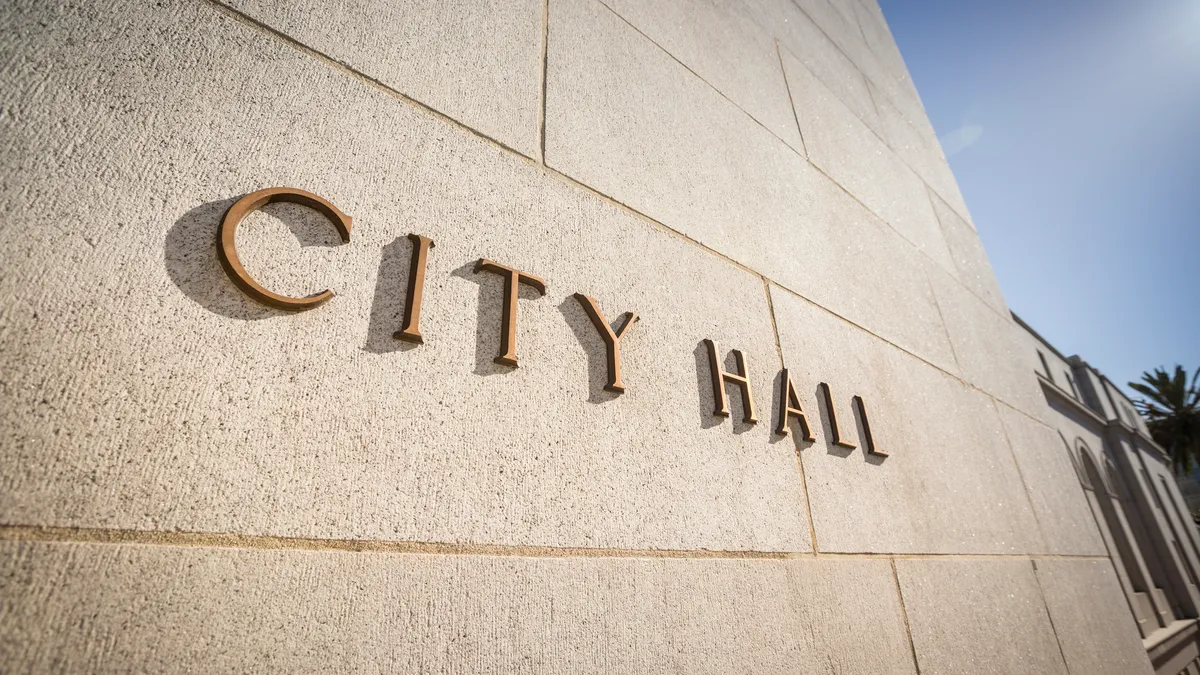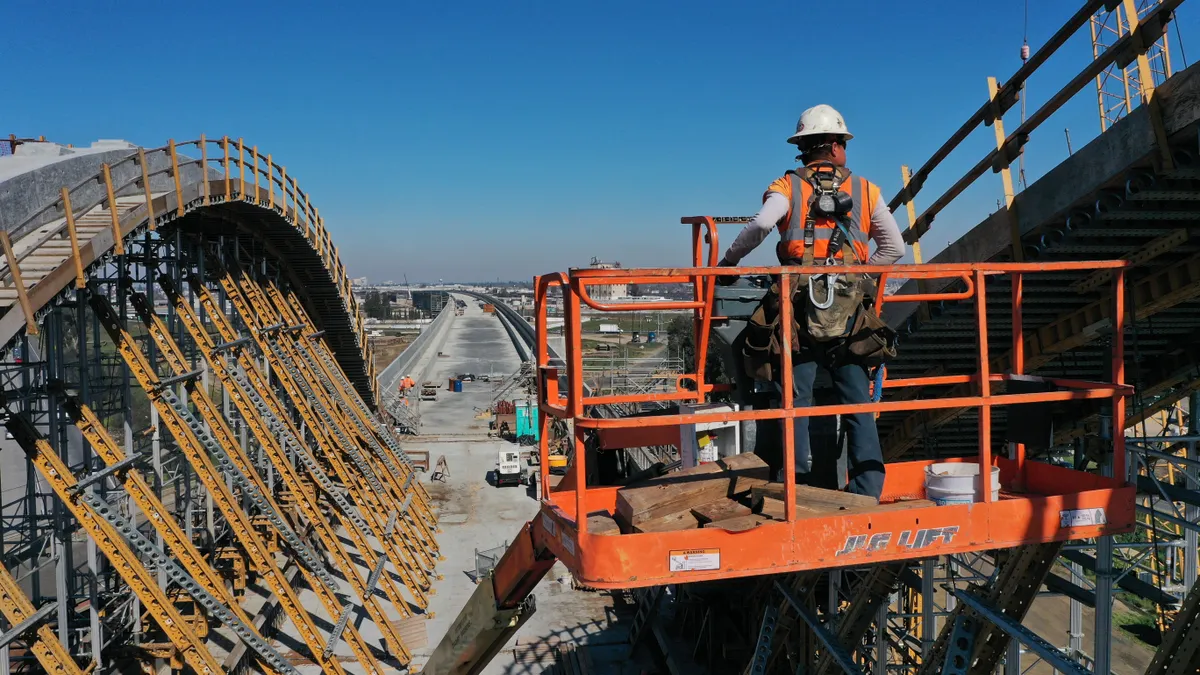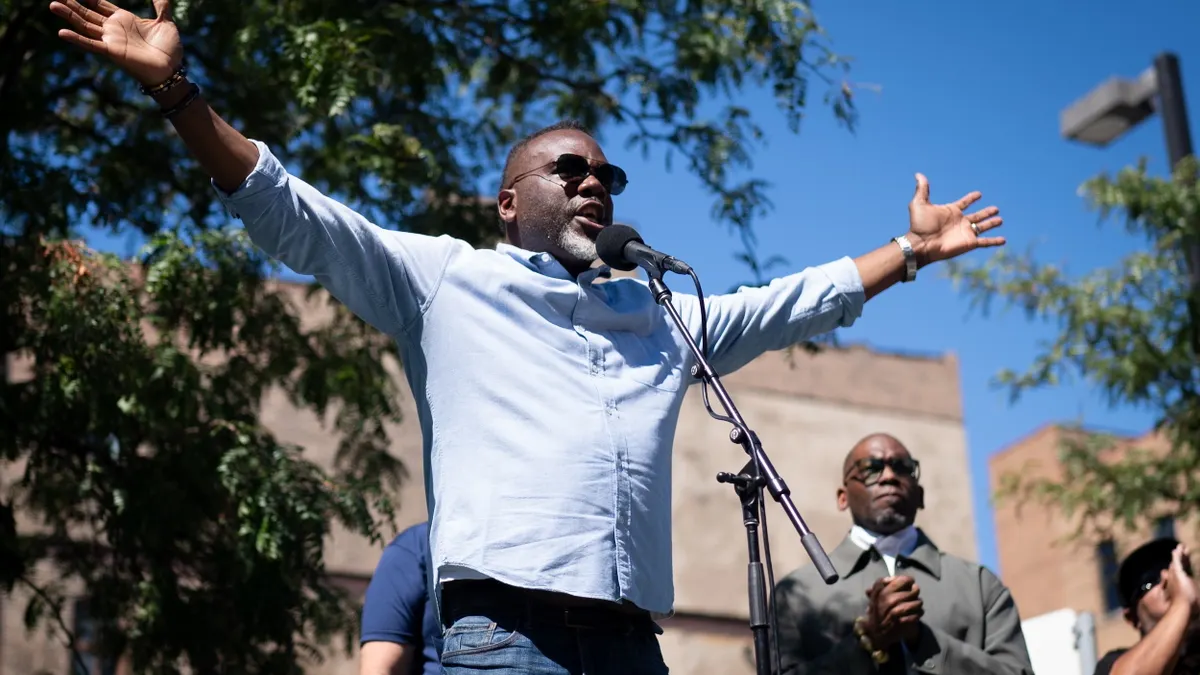Clarence E. Anthony is the chief executive officer and executive director of the National League of Cities. He previously served as the mayor of South Bay, Florida.
From the start of the pandemic and through everything that followed, local leaders across the nation have had to step up in unforeseen ways to meet their residents’ needs. Whether it was making tough decisions about how and when to put COVID-19 safety protocols in place or figuring out how to balance budgets with less revenue, these officials have led our country from the ground up and made it possible for us to come out on the other side.
Unfortunately, these local leaders’ jobs increasingly put their lives at risk. Around Jan. 6 of last year, a man drove into Washington, D.C., with an assault-style rifle, Glock firearm and thousands of rounds of ammunition. According to federal court filings, the man texted, “I may wander over to the Mayor’s office and put a 5.56 in her skull.” The mayor he was referring to is D.C. Mayor Muriel Bowser and the “5.56” he referred to is an armor-piercing bullet.
Unlike other elected officials whose positions keep them in state capitals or in Washington, city leaders are embedded in their communities. When President Biden recently addressed the National League of Cities, he summed it up well: As a local elected official, “You can’t walk into a grocery store or gas station, you can’t go into a supermarket without someone having a question for you because you’re the people they know, you’re the people they depend on. You’re out there every day on the front lines of public service.”
The access residents have to local officials is critical, ensuring their needs and concerns are heard and understood. As a former mayor, I can attest to the value of in-person and often spontaneous constituent interactions and the insight they provided as I formulated my response to any number of issues. While I may not have agreed with all the opinions that were shared with me, hearing them exposed me to a range of viewpoints that led to more informed public policy.
Heightened partisanship has been a concern for a while now, but I fear we may be on the verge of devolving into an even more damaging level of incivility. Back in 2020, following the approval of an indoor mask requirement by the city commission, Mayor Joyce Warshaw of Dodge City, Kansas, was bombarded with so many vitriolic and threatening messages that she resigned, fearing her safety was in jeopardy. It was a heartbreaking end to a decades-long career of public service, most of it spent as an elementary school principal in the community.
Mayor Lauren McLean of Boise, Idaho, last month released a statement recalling her own encounters with violent intimidation. “I understand the decision to leave public office because I still feel intensely the fear, frustration, and helplessness of watching my two children quietly take in news of thwarted threats against me and learning that they, too, were being targeted and tracked online.” In her statement, Mayor McLean recounts having to hide her fear from her children as people with torches marched outside her living room window, and how death threats keep her from the early morning trail runs she’s enjoyed for the last 24 years.
A recent report from the National League of Cities found that 81% of local public officials surveyed had experienced harassment, threats and violence, and 87% have noticed harassment, threats and violence increasing during their time in office.
The decision to run for public office is already beset by the ugliness of what one can expect from modern-day political campaigns. Attacks on one’s career, family and character are all standard fare. It’s enough to keep many capable leaders away, deciding for good reason that it simply isn’t worth it. Throw on top of that the violent intimidation we’re now seeing, and I genuinely worry about how our nation’s cities, towns and villages will attract and retain the talent we need.
As we saw during the pandemic, good leaders matter. Tackling issues surrounding public health, affordable housing, crime, equity, infrastructure and many other pressing topics requires talented and committed public servants. If we allow our legitimate disagreements to swell into hatred and violence, we all suffer. Combating this escalation requires an effort from all of us to keep our passions in control and speak out when others take things too far — especially when it’s coming from people with whom we agree.
After talking with local officials throughout the country on this issue, there are three areas where I believe action can be helpful.
First, municipalities ought to provide increased security at council meetings and, where prudent, install metal detectors and ballistic glass. Second, knowing the toll the current situation takes on officials’ well-being, localities should hire mental health professionals to help officials manage trauma and more effectively support communities that are also going through crises. And third, we must recognize that the spread of misinformation and disinformation is a continuing reality. Different levels of government can coordinate on fact-checking sources to improve online engagement, adopting and displaying codes of conduct in government buildings and developing violence mitigation policies.
“I think you’re seeing a lot of people choosing not to serve in public office anymore," former Atlanta Mayor Keisha Lance Bottoms said in reaction to the findings of NLC's survey, as her term was coming to a close. "People are choosing emotional and mental health and wellbeing over public service, and that is a dangerous point for us to be in as a country.”
Our leaders and their families deserve better. Local government is the foundation of America, and we must ensure that the people who step up to serve and better our communities aren’t driven away. If they are, we all stand to lose.
Contributed pieces do not reflect an editorial position by Smart Cities Dive.
Do you have an opinion on a similar issue or another topic Smart Cities Dive is covering? Submit an op-ed.


















